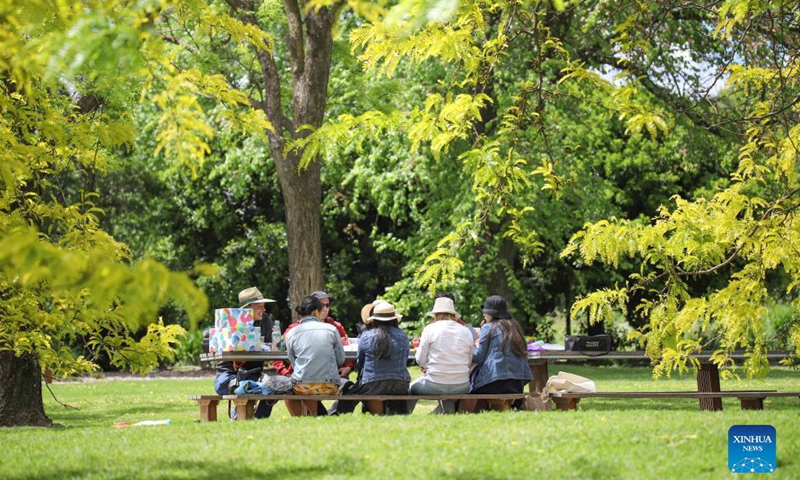Seniors more likely to see silver linings, shows Australian research

People have a picnic near Lake Burley Griffin in Canberra, Australia, Oct. 30, 2021. Coronavirus restrictions in Australia's Canberra have eased significantly as residents of the Australian Capital Territory (ACT) are no longer required to wear facemasks outdoors from Friday.Photo:Xinhua
A study by a team of international and Australian psychologists has shown that the older people are better able to see the positive side of experiences.
The study was published in the Journal of Neuroscience and released to the public on Monday, which involved 249 participants aged between 18 and 88.
It found that older participants were able to put a positive spin on footage of a weather forecast and were more successful in reframing the most distressing content.
"So, we're seeing an increase in positive emotionality with age," said University of New South Wales psychologist and study co-author Susanne Schweizer.
Participants in the study were shown the footage in two instances: In the first they were asked to have any emotional reaction to the images, and in the second they were tasked with regulating their emotional response, this was then compared to participants' MRI scans.
Schweizer said that older participants, despite having a more negative "resting mood state" or baseline, were better able to adapt to the stimuli.
"These data correspond quite neatly to the 'Socioemotional Selectivity Theory' of aging. This theory states that, as we age, we become more adept at navigating our social environment, carrying a broader psychological toolkit, or simply rearranging our lives to minimize drama," she said.
She said data was not in line with the "Aging Brain Model" which suggests older people react positively to distress as the area of their brain that generates negative reactions loses function.
"We didn't see an independent contribution of amygdala volume [one of the brain regions involved in negative reaction] on participants' emotionality," said Schweizer.
Xinhua



